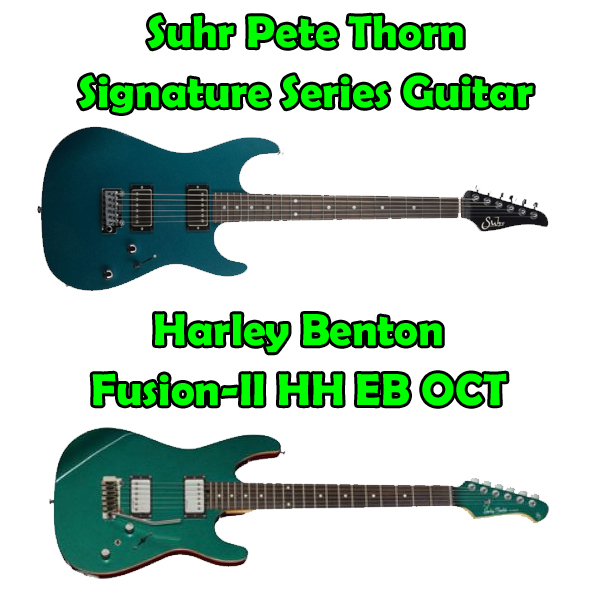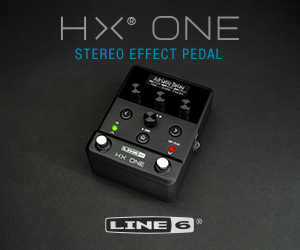Un-Suhr-tain Future? Is Harley Benton Crashing the Premium, Professional-Grade Party?
trushack | May 13, 2019 | Comments 0
Un-Suhr-tain Future?
Is Harley Benton Crashing the Premium, Professional-Grade Party?
By now, dear reader, you’re familiar with the Harley Benton line of instruments. The YouTube community has taken more than a little bit of a shine to the line; you can pick from a ton of different electric, acoustic, and bass guitar models that deliver solid value for exceptionally low prices.
We here at TheToneKing.com would suggest that even Harley Benton might concede they’re not on the forefront of original builds and designs…pretty much every Harley Benton model is a reflection of a classic design or silhouette…but that’s also part of the appeal. If you’re primarily a twangy T-style player but want to have a little Floyd Rose fun without busting the budget, Harley Benton can scratch that itch. The instruments are also priced so low that you can even throw a second or third one in the shopping cart without your wallet breaking a sweat.
Suhr Guitars kind of exist in a completely different universe. They’re well regarded for making what this writer would term “ultra-professional grade” guitars and amps. In other words, these are very high-quality instruments with a lot of custom build elements included. They’re built in smaller batches with extreme attention to detail. A brand-new Suhr guitar is unlikely to be found in your “big box” music store; in all likelihood you’re going to have to go to shop that specializes in higher-end merch to get your hands on one. If this writer had to guess, Suhr’s customer base is probably heavily skewed towards professional musicians, very advanced/experienced players, and collectors.
Respected, in-demand sideman, gear reviewer, and “guitar nerd” extraordinaire Pete Thorn has been a Suhr artist for over a decade, and his Suhr Pete Thorn Signature Model guitar has set many mouths a drooling. We might also surmise that it caught Harley Benton’s attention as well, as they recently debuted the Harley Benton Fusion II. While there is nothing outwardly radical about the Thorn’s appearance (Strat-style body, duel ‘buckers, straightforward electronics arrangement), the Fusion II does appear to be posing as a long-lost cousin.
However, when we dive into the specs of the HB, they’ve done a little of homework. Like the Thorn, the HB has stainless steel frets and locking tuners. A Wilkinson bridge comes standard. Where the Thorn goes for a rosewood fingerboard, the Fusion II picks ebony. You can even get the Fusion II in the same Ocean Turquoise finish as the Suhr.
A lot of those features…locking tuners, stainless steel frets…are not considered the traditional domain of value-priced instruments. If Harley Benton can keep including upgraded materials and specs on it’s instruments, are they that much closer to cracking the code that will consign higher-end, super premium builders to the sidelines?
We think that’s pretty unlikely.
We’re not taking anything away from Harley Benton here. At least for this writer, nearly anything that gets more guitars into more hands is OK by me*.
John Suhr’s been getting it done for over 35 years. While working at the famous Rudy’s Music Shop in New York City he built guitars for Mark Knopfler (a personal hero), Eric Clapton, Peter Frampton, and Steve Stevens (and many others). He was a Senior Master Builder at the Fender Custom Shop, and worked with Bob Bradshaw designing amps for Custom Audio Amplifiers. Not a bad resume for this sort of thing.
A Harley Benton guitar will never be able to connect you to John Suhr’s or Pete Thorn’s ears, hands, knowledge, and experiences. Hell, nothing but a Suhr can do that! That factor, combined with amazing materials, attention to detail, and build quality is what makes a Suhr a Suhr.
What Harley Benton does, and does well, is get solid instruments in the hands of musicians for not a lot of money. They are intended to be highly accessible and suitable for a variety of different players, from beginners to hobbyists all the way up to pros that don’t have the resources to “go big.” Making instruments at the typical Harley Benton price point require a fair number of concession in the manufacturing process, but that’s how most businesses work.
All that said, Harley Benton does seem to be on an upward trajectory in build, materials, and designs. They may be “value-priced” now, but we could be witnessing the rise of a future higher-end builder. Time will tell!
*Despite being an honorable thing to do, I do have my limits on what is righteous and what is not but you haven’t asked so I’m not telling. 🙂
Since we just covered Suhr vs. Harley Benton … have a look at this video:
PRS vs. Harley Benton
Is PRS that much better? Is Harley Benton good enough?
And here’s TTK’s take on the new Harley Benton Guitar Line-Up:
Tiny URL for this post:
About the Author:





















